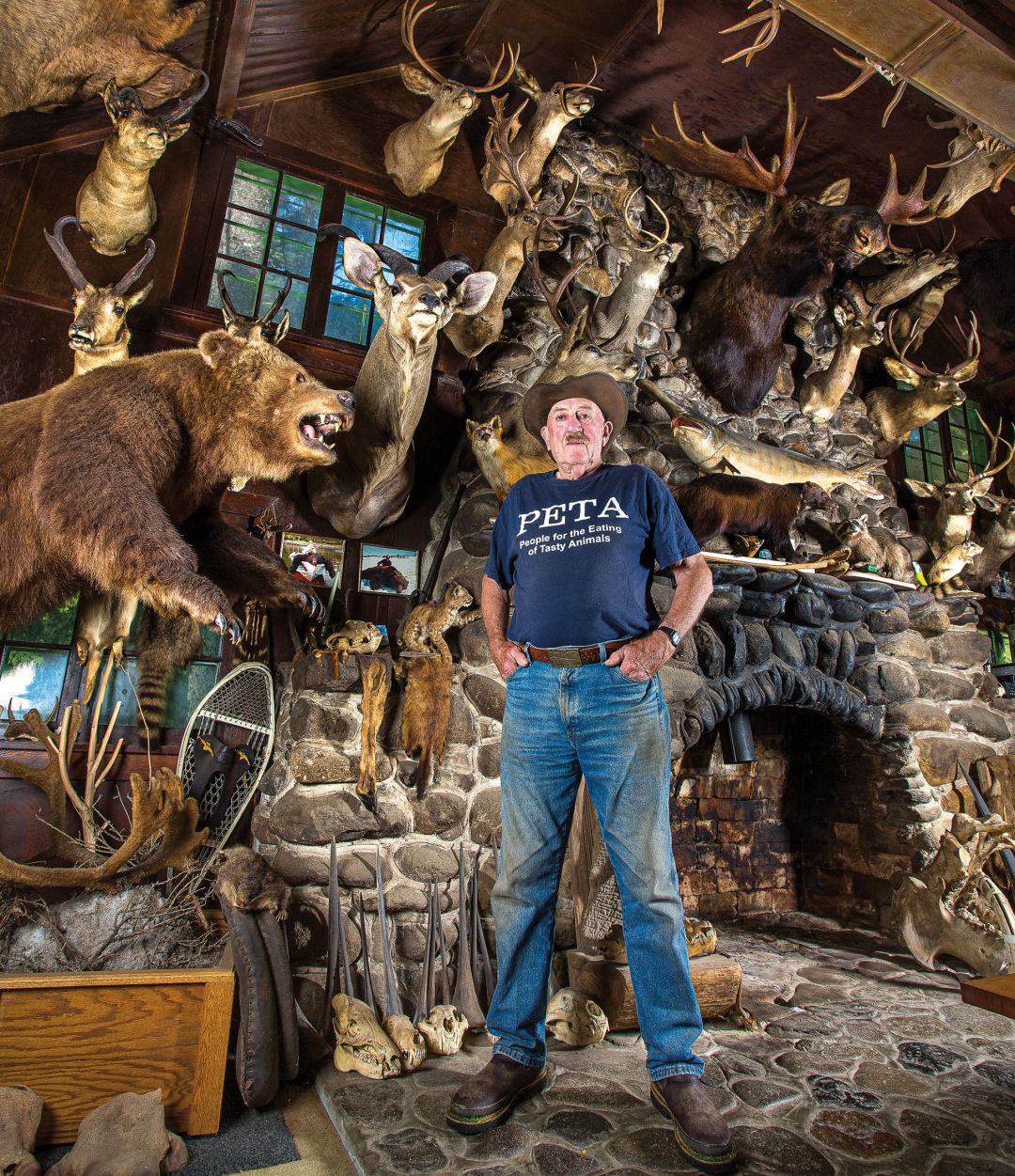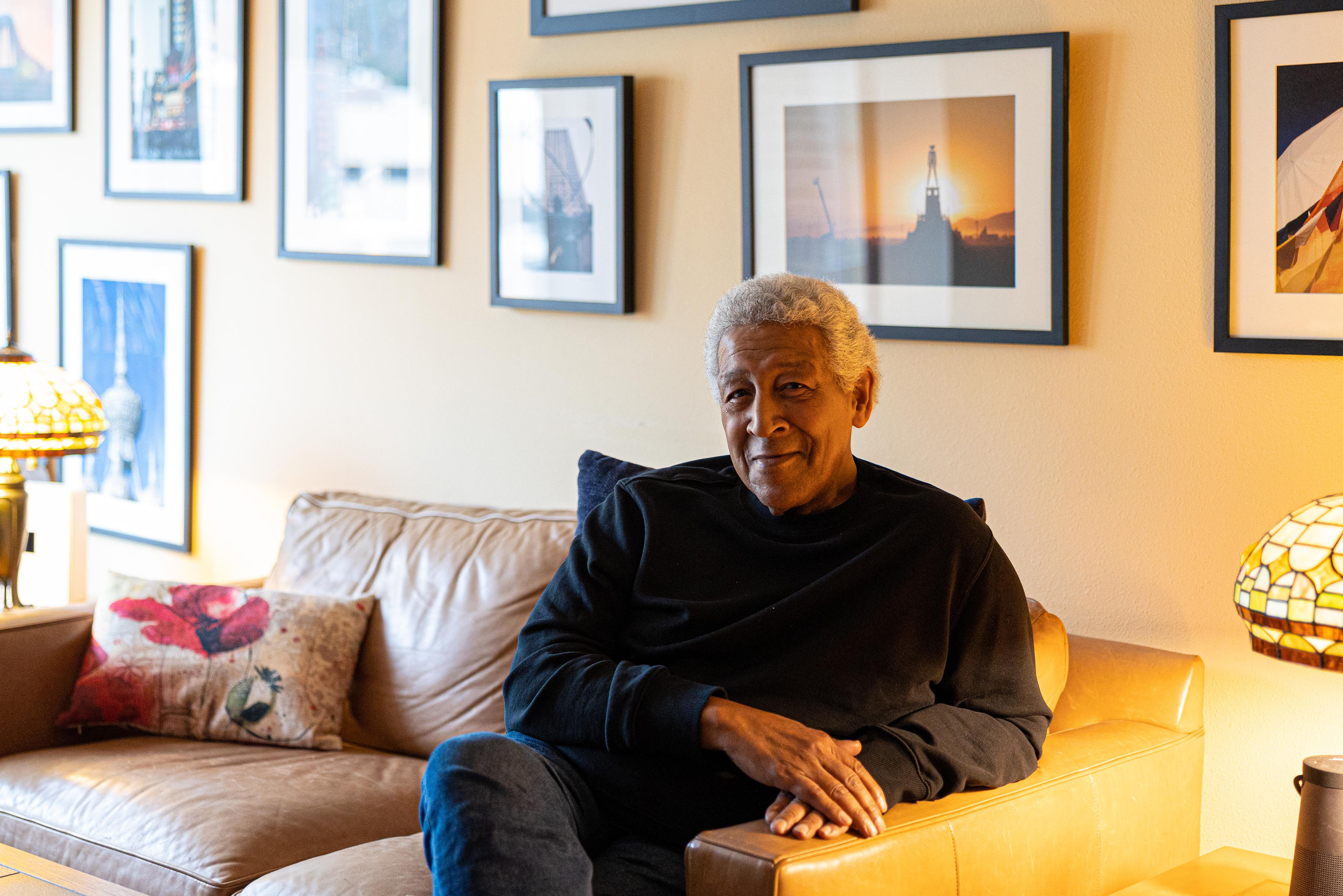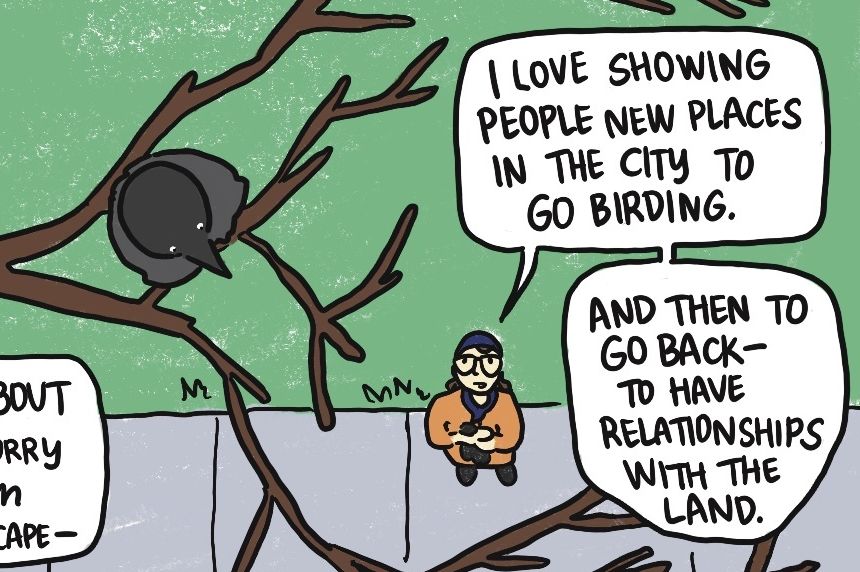Meet the 78-Year-Old Oregon Hunter Who Says He's Never Had to Buy a Piece of Meat

Image: Stuart Mullenberg
Billie Ritchey, 78, has hunted his own dinner since he was 10. When he was growing up outside Camas, Washington, his dad would hunt deer and bear to feed a family of eight. In the 1960s, black bears were so plentiful in some areas of southern Washington that shooting or trapping them was allowed year-round. Ritchey and a buddy capitalized on that, leading bear hunts for $100—money back guaranteed. In a region home to both militant vegans and sport hunters, Ritchey is a pioneer throwback whose passion for hunting has taken him to the far corners of the world. He’s scored a brown bear from Russia’s Kamchatka Peninsula, a Cape buffalo from Mozambique, and mountain goats from Tibet. Diminutive deer heads—including that of a fanged muntjac—crowd the rafters of his Washougal River–area cabin. On a bedroom wall, he’s mounted a shaggy sheep head from Mongolia and tur from Azerbaijan. Ritchey’s expertise means he was regularly tapped by the Washington Department of Fish & Wildlife to track livestock-menacing mountain lions. Retired from his career in construction, Ritchey still eats everything he kills, from beavers to bears, though as hunting regulations continue to tighten he mostly catches fish nowadays. “I’ve never bought a piece of meat in my whole life,” he says. “If you’re gonna kill an animal, don’t waste it.”
That Cape buffalo over there is from Mozambique. That was my last safari. It took me over a year and a half to get him here, with a lot of paperwork—and pesos. It’s not cheap to bring them into the country, and I’m [not] doing it anymore. I’ve lost a lot of stuff. The [feds and other bureaucrats], they just take it away from you. They’re not hunters.
This Muntjac is from Lord Marlborough’s estate in England. That was a long time ago. He told me he had to kill 300 of them a year—because in England they have no more land, so to keep everything healthy he had to shoot a bunch of them.
I eat them all—everything. That little critter there: That’s a mountain beaver that was getting into my garden, so I ate him. Put him into the crock pot with some potatoes, carrots, and celery. My kids were raised on bear mostly. I’d shoot a bear or two every week. I had six kids, and that’s all we ate was bear.
I’ve hunted bears all my life. That’s actually a grizzly-brown bear—he was nine-foot-two. I got it in Kamchatka. We chartered an airplane to get us there in the first place. He was actually chasing my guide, who was a Russian who didn’t speak any English. He all of a sudden learned how to say, “Shoot! Shoot! Shoot!”
I do a lot of touring when I go hunting. We always go hunt something, and if there’s anything of interest there, we do it. When I went to China, I went to the Imperial Palace and every place there was in China to see: the Forbidden City, the Tombs, you know.
The game department gave me the permit to track a mountain lion up at Mount Norway, [Washington]. It was near some movie star’s place ... Mel Gibson. It probably has five garages. It borders a state park, so no guns, no dogs. Man, you want me to hunt this lion, and I can’t take my gun? And I can’t take my dog? [Ritchey did not end up seeing a mountain lion.]
I’ve never been in fear of my life. But in Mexico I was hunting in the jungle ... on the Guatemala border. [He gestures to several wormy-looking things, preserved in a small jar.] Well, those came from a botfly. The fly lays eggs on the tick, the tick bites you, and the eggs ... go into the hole. I was squeezing my arm and this one [he shows a photo of a two-inch-long larvae] came out. I took some kind of antibiotic. I was lucky. I was the eighth person who ever had them in the United States.
We flew into Yellowknife, in the Northwest Territories, and went a couple hundred miles north of there. That’s where I should’ve gotten my wolf that I didn’t get. The wolves up there are pure white. Beautiful! I got pictures of him and video of him, but I don’t have him hanging on my wall.
I haven’t been [to Portland] in years. The farthest I’ve gone into Portland in 25 years is the outdoor sports show that’s across the bridge [at the Expo Center]. I often wonder what those people in town would do if all of a sudden they had nothing. There would be a lot of people starving, probably, because most people don’t know how to cook anything that’s not in a package or a can, to do the skinning and butchering. I always have enough to eat.




